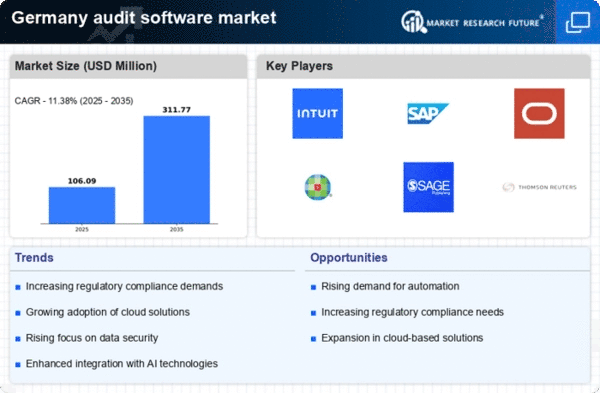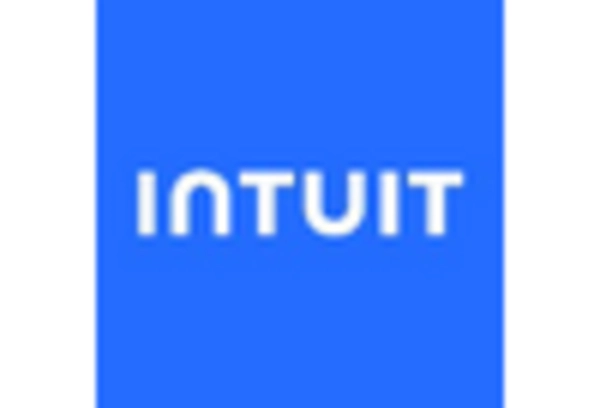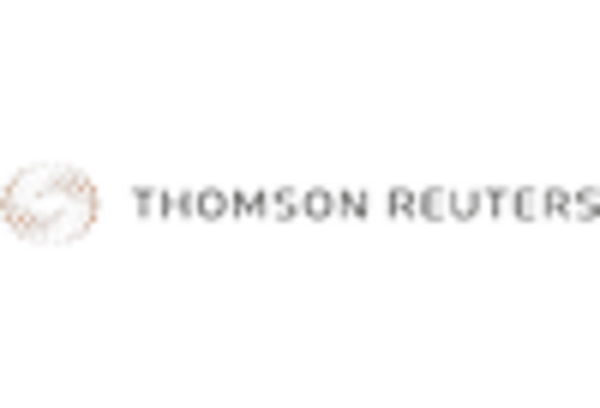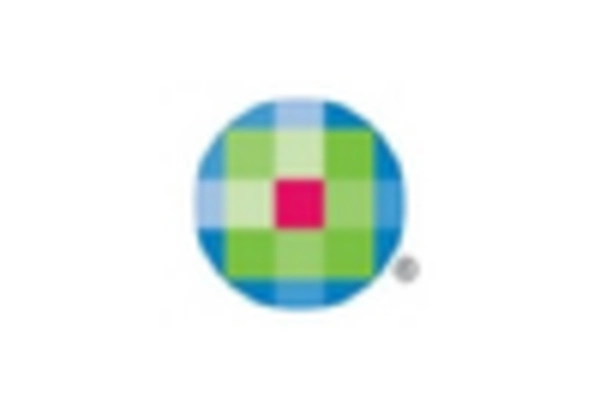Increased Regulatory Scrutiny
The audit software market in Germany is being shaped by heightened regulatory scrutiny across various industries. As compliance requirements become more stringent, organizations are compelled to adopt advanced audit software. As compliance requirements become more stringent, organizations are compelled to adopt advanced audit software to ensure adherence to regulations. In 2025, it is anticipated that compliance-related features will account for approximately 25% of the functionalities sought in audit software solutions. This trend is particularly evident in sectors such as finance, healthcare, and manufacturing, where regulatory bodies impose rigorous standards. The need for accurate reporting, documentation, and audit trails is driving the demand for software that can automate compliance processes. Consequently, the audit software market is likely to grow as businesses invest in solutions that not only facilitate compliance but also enhance overall operational transparency.
Rising Need for Data Security
The audit software market in Germany is experiencing a notable surge in demand due to the increasing emphasis on data security. Organizations are becoming more aware of the potential risks associated with data breaches and are seeking robust solutions to safeguard sensitive information. In 2025, it is estimated that the data security software segment will account for approximately 30% of the total audit software market revenue in Germany. This heightened focus on security is driving companies to invest in advanced audit software that offers features such as encryption, access controls, and real-time monitoring. As regulatory frameworks evolve, the need for comprehensive audit trails and accountability further propels the demand for specialized audit software solutions. Consequently, The audit software market is likely to witness sustained growth. This growth is due to businesses prioritizing data protection and compliance.
Shift Towards Cloud-Based Solutions
The transition to cloud-based solutions is significantly influencing the audit software market in Germany. Organizations are increasingly adopting cloud technologies. As organizations increasingly adopt cloud technologies, the demand for cloud-based audit software is expected to rise. In 2025, cloud-based solutions are projected to represent around 40% of the total audit software market share in Germany. This shift is driven by the advantages of scalability, cost-effectiveness, and accessibility that cloud solutions offer. Companies can leverage these benefits to streamline their auditing processes and enhance collaboration among teams. Furthermore, the ability to access audit software from anywhere facilitates remote work and improves operational efficiency. As businesses continue to embrace digital transformation, the audit software market is likely to expand, with cloud-based solutions playing a pivotal role in meeting the evolving needs of organizations.
Emergence of Artificial Intelligence
The integration of artificial intelligence (AI) is poised to transform the audit software market in Germany. AI technologies are increasingly being incorporated into audit software. AI technologies are increasingly being incorporated into audit software to enhance data analysis, risk assessment, and decision-making processes. In 2025, it is projected that AI-driven functionalities will account for approximately 15% of the total audit software market. This trend reflects a growing recognition of AI's potential to improve accuracy and efficiency in auditing tasks. By leveraging machine learning algorithms, organizations can identify anomalies, predict risks, and automate routine processes. As businesses seek to harness the power of AI, the audit software market is likely to evolve, with innovative solutions that cater to the demands of modern auditing practices.
Growing Focus on Operational Efficiency
The pursuit of operational efficiency is becoming a critical driver for the audit software market in Germany. Organizations are increasingly recognizing the importance of optimizing their auditing processes. Organizations are increasingly recognizing the importance of optimizing their auditing processes to reduce costs and improve productivity. In 2025, it is estimated that efficiency-enhancing features will constitute around 20% of the total demand for audit software solutions. Companies are seeking software that can automate repetitive tasks, streamline workflows, and provide real-time insights into financial performance. This focus on efficiency is particularly relevant in a competitive business landscape, where organizations strive to maximize resource utilization. As a result, the audit software market is likely to experience growth as businesses prioritize solutions that enable them to operate more effectively and make informed decisions.
















